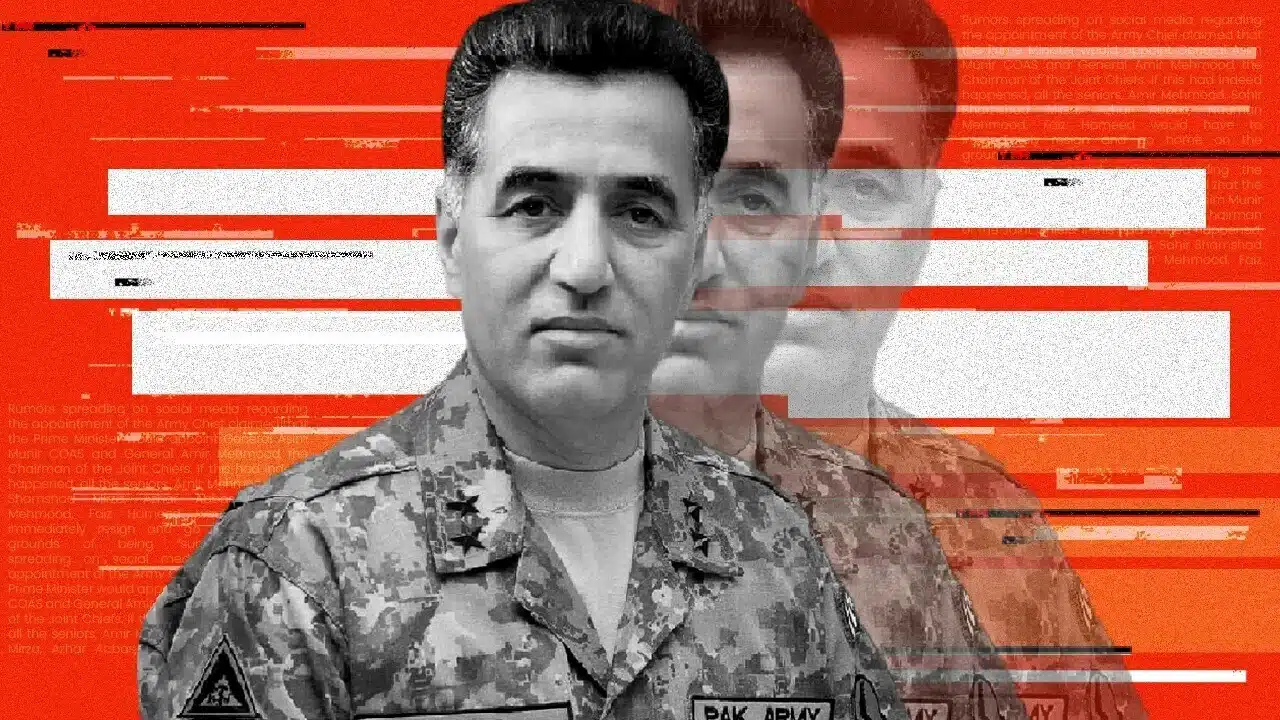The court-martial proceedings against former Chief of Inter-Services Intelligence (ISI) Lieutenant General (retired) Faiz Hameed underscore the complexities of enforcing accountability within Pakistan’s military. Some may view this action as a step towards upholding the rule of law within the ranks. However, it also raises questions about the consistency and motivations behind it. Accountability forms the bedrock of any institution that seeks to practice the rule of law and ensure the legitimacy of actions by its members.
In Pakistan, where the military has historically wielded significant influence, the recent court-martial trials of Lieutenant General (retired) Faiz Hameed, a former Spy Chief, have surprised the country. This unprecedented action might suggest a determination to address internal issues, regardless of the officer’s rank or past record. The case also highlights the need for internal checks and balances. It underscores that nobody is immune to the law in Pakistan.
The Charges Against General Faiz Hameed
General Faiz Hameed, who was once the chief of Pakistan’s most powerful Inter-Services Intelligence (ISI), is now in custody. He faces court-martial on charges of embezzlement and blackmailing a private housing society for extortion money.
The charges stem from a petition filed by Kanwar Moeez Khan, the current Chief Executive Officer of the Top City Housing Society. He submitted the petition to the Supreme Court of Pakistan. The petition accuses General Hameed of ordering a raid on the offices of the housing society and on Mr. Moeez’s home. This action was taken under the pretext of counterterrorism while Hameed was still the ISI chief. During the raid, authorities reportedly seized property such as gold and cash. However, they did not account for all of it. Given the seriousness of the charges and the high rank of the officer involved, this case has attracted significant attention.
Historical Context and Military Accountability
It is noteworthy that the military has proceeded with the court-martial of General Hameed, given his background. People knew General Hameed as a confidant of former Prime Minister Imran Khan. They considered him a powerful figure in both military and political circles. His control of the ISI during Mr. Khan’s premiership significantly enhanced his influence. However, the current developments may reflect a shift in the military’s approach. They suggest a willingness to enforce accountability across the board. This applies irrespective of an individual’s past power or connections.
Past Cases of Military Accountability
This is not the first time such a case has been reported. In the past, Pakistan’s military has dismissed other senior officers for various violations of the law.
For instance, a Field General Court Martial (FGCM) convicted retired Lt. Gen Javed Iqbal Awan for passing classified information to foreign spies. They sentenced him to 14 years’ imprisonment, which was later reviewed. Similarly, authorities arrested Maj Gen Zaheerul Islam Abbasi and Brig Mustansir Billah in 1995. They were charged with conspiring to overthrow the government and impose an Islamic system. A few years ago, officials removed Lieutenant General Salman Fayyaz from his position due to his inept handling of vandalism in a provincial capital. More recently, they sent Lieutenant General Aymen Bilal home on disciplinary grounds.
Inconsistencies in Punishments
These cases demonstrate that the military is capable of disciplining its members. However, the punishments awarded have varied. This variation reflects inconsistency in how accountability is enforced. In some instances, authorities have discharged officers from service following disciplinary proceedings rather than court-martialing them. For example, then-Prime Minister Nawaz Sharif appointed Lieutenant General Ziauddin Butt as Army Chief in 1998, but officials removed him from service without any court-martial. Similarly, during General Raheel Sharif’s tenure as Army Chief, authorities dismissed several officers, including a three-star general, on corruption allegations but did not subject them to a court-martial.
The case of General Faiz Hameed, however, appears to signal a potential shift toward more stringent disciplinary measures. The military might now be preparing to impose more severe punishment on its members for wrongdoing, as indicated by his arrest and the initiation of court-martial proceedings.
Implications of the Case
This development is important in several ways. Firstly, the military leadership could be signaling to the public that it is committed to addressing violations of the law within its ranks. Secondly, this action suggests that accountability is not partial and that even top officials can face investigation. However, the case has political implications, especially given General Hameed’s relationship with Imran Khan. Some observers speculate that the court-martial may be part of a broader effort to penalize those perceived as supporters of Mr. Khan, even if they are not politicians. While this interpretation remains speculative, it highlights the intricate relationship between the military and politics in Pakistan.
Conclusion
The arrest and court-martial of General Faiz Hameed are significant events in Pakistan’s history. While it could be seen as a move toward strengthening the rule of law, it also underscores the need for consistent and transparent accountability mechanisms. This case is peculiar, but it may indicate a broader trend towards increased transparency and accountability in Pakistan, which is crucial for the country’s sustainable development.
The views expressed in this article are the author’s own. They do not necessarily reflect the editorial policy of the South Asia Times.


![Ukrainian and Russian flags with soldier silhouettes representing ongoing conflict. [Image via Atlantic Council].](https://southasiatimes.org/wp-content/uploads/2026/02/2022-02-09T000000Z_1319661209_MT1NURPHO000HXCNME_RTRMADP_3_UKRAINE-CONFLICT-STOCK-PICTURES-scaled-e1661353077377.jpg)



![Truck traveling along the Makran Coastal Highway in Balochistan, with rugged cliffs and the Arabian Sea coastline in the background [Image via Getty Images].](https://southasiatimes.org/wp-content/uploads/2026/02/Balochistan-2.webp)